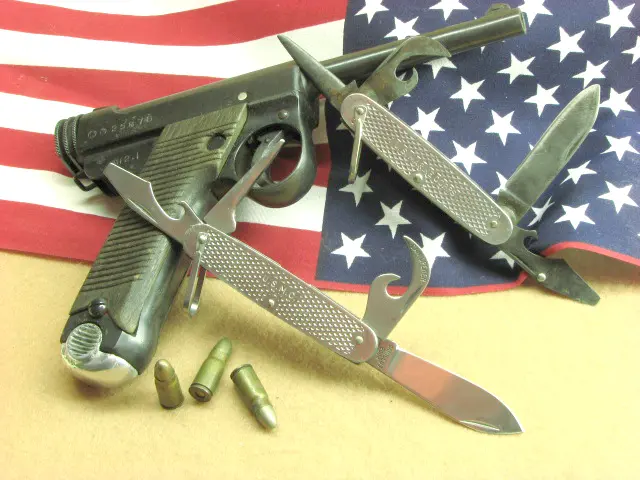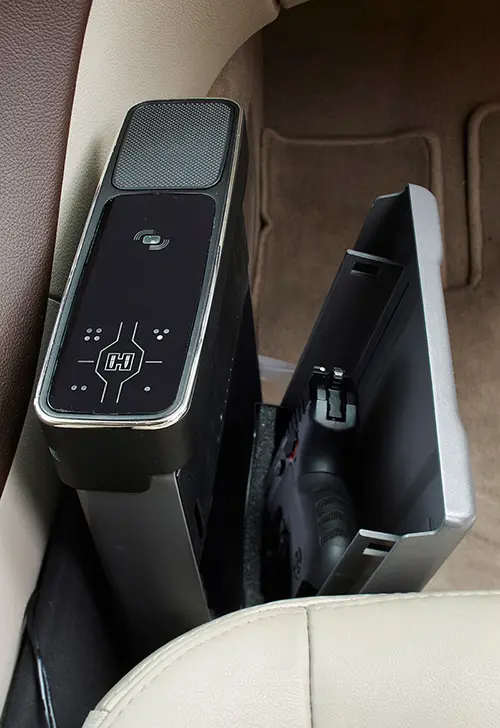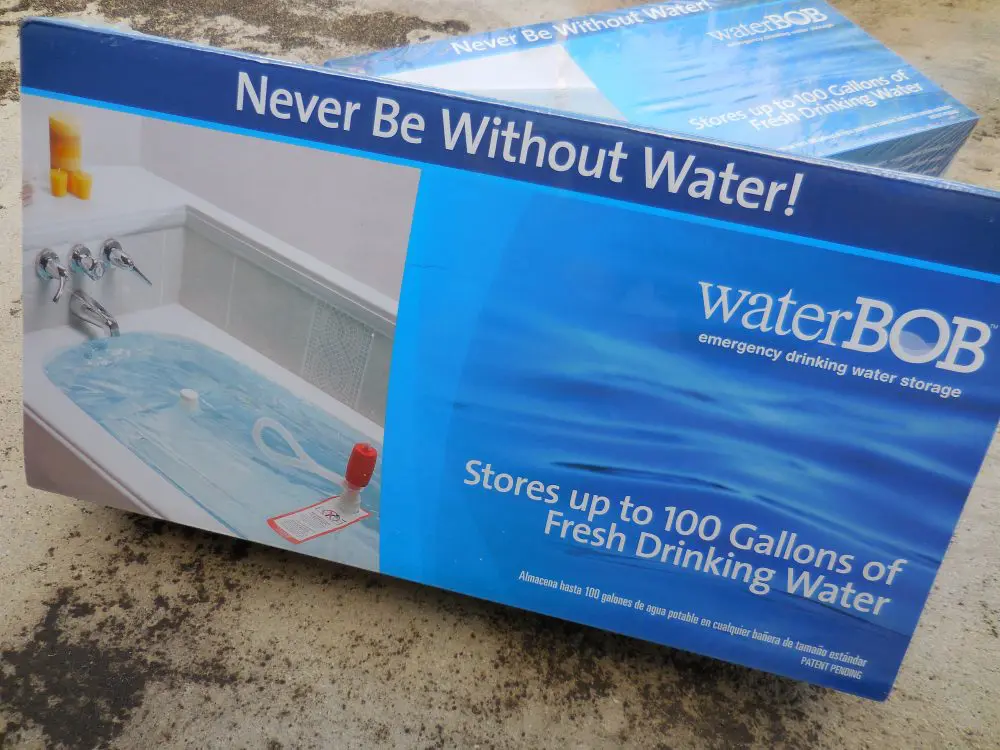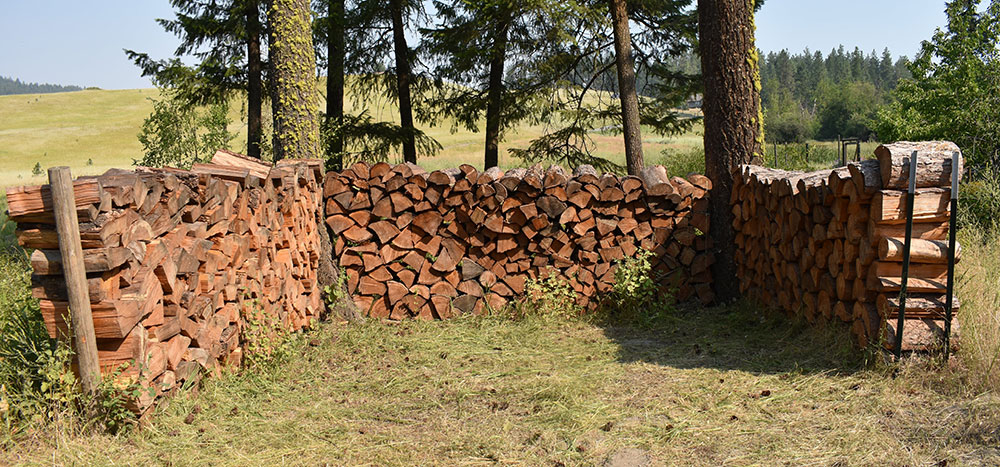
I recently ran into an acquaintance at a gun show. He moved here a couple years ago from the east coast, bought 60 acres and a nice house up in the hills, and got interested in preparedness.
He launched into telling me about his newest purchase, a .338 Lapua with the Hubble Telescope mounted on it. He extolled the virtues of shooting bad guys at 1,500 yards and destroying lightly armored vehicles.
I asked what rifle training he’d had: none. How far can you shoot from your house: maybe 200 yards. Food supply: two weeks. Water: from a well, once he buys a generator. He then said that none of that mattered: His neighbor was a farmer, so he could take what he needed. May God save us from such stupidity.
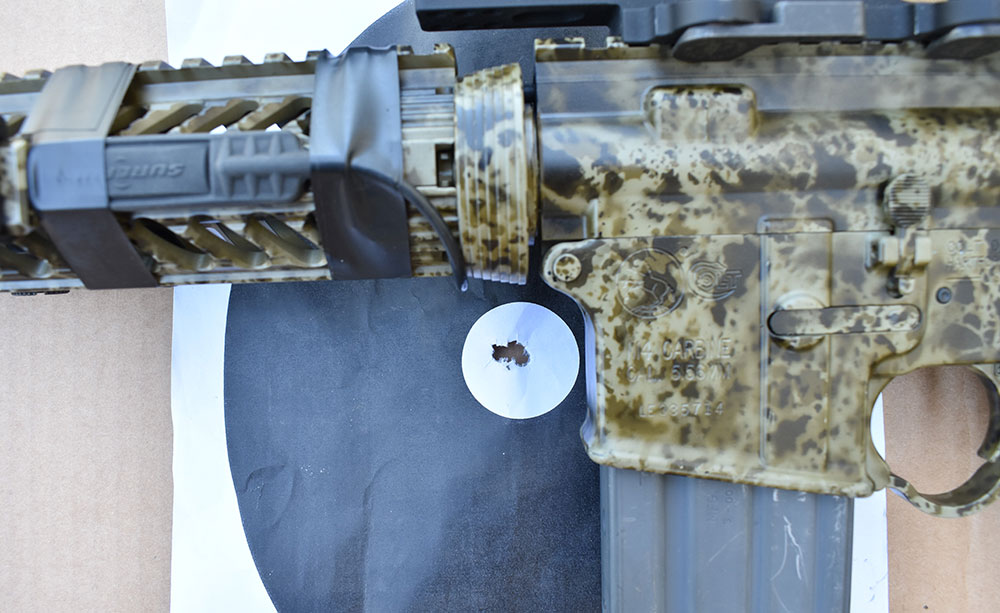
Let’s face it, most of us can’t shoot to the capability of most off-the-rack firearms. I get lucky now and then, like the target shown here. It was fired with Black Hills 69-grain Match out of a Colt OEM 6920 (the naked Colt AR). The carbine had a Leupold 1.5X5 scope in LaRue QD mounts and a Geissele SSA trigger. I don’t need a cold hammer-forged cryo’d barrel—a plain $850 gun will do nicely, with the listed help.
I shoot out-of-the-box Colt 1911s and S&W revolvers, and I can’t shoot to their potential, either.
I’m a gun guy, always have been. I have enough guns to do what I need. But I believe in the Rule of Threes: three minutes without air, three hours without shelter, three days without water, three weeks without food. I can probably live the rest of my life without needing a gun, so if I didn’t have some, there would be other priorities. When the grid goes down, the items listed below will be more critical than a sniper rifle.
Table of Contents
WATER
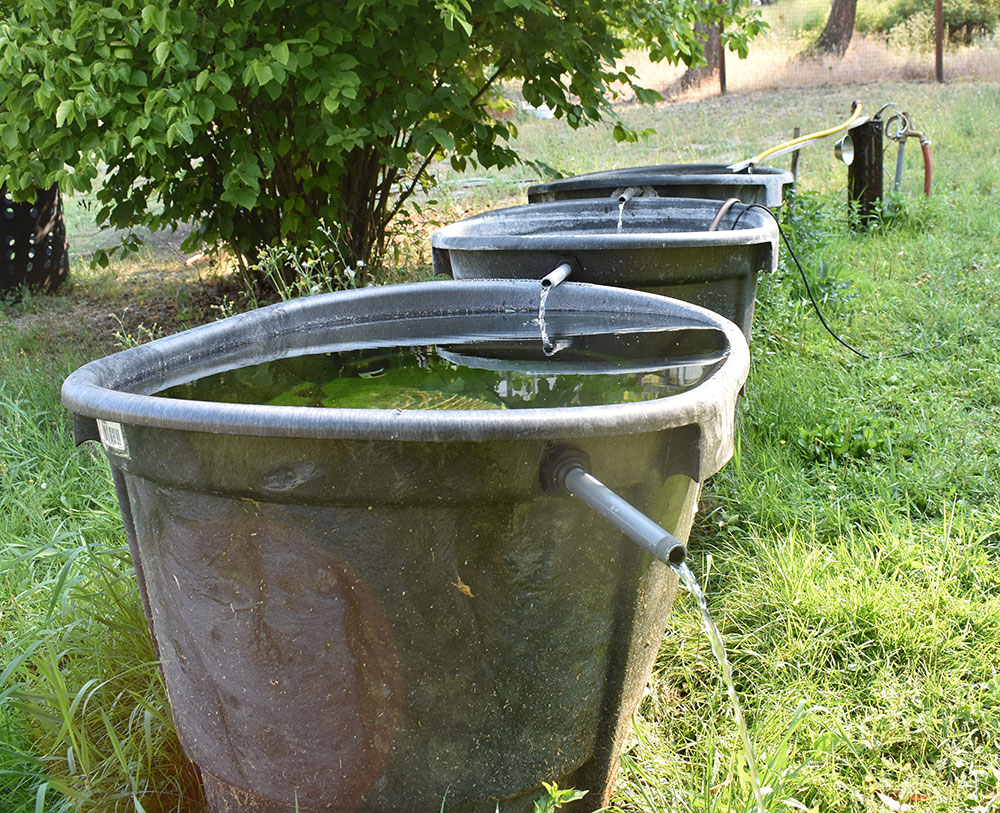
Water is life. When I moved here, the well had an artesian flow. That means it flows out of the top of the pipe without power. I ignored that feature for a few years, until I realized how fantastic it is. I just installed the third of three 100-gallon stock tanks to collect and hold the water.
After levelling the first, I cut a hole near the rim and installed a plastic pipe, allowing it to dump into the second, then the third tank. I have 300 gallons of pure, fresh water constantly cycling through, so if the power was off for a year, I’d always have drinking water.
I also have a small sump pump and use it for extra water for berry bushes and fruit trees. I bought a small garden cart that holds three five-gallon buckets, which I can fill and roll up to the house. I have another 250 gallons, from another spring, that waters the garden daily, using a timer and irrigation system.
You need to store two gallons per day, per person. There are dozens of storage methods, from standing containers to water beds, so find something that will work where you live.
SANITATION
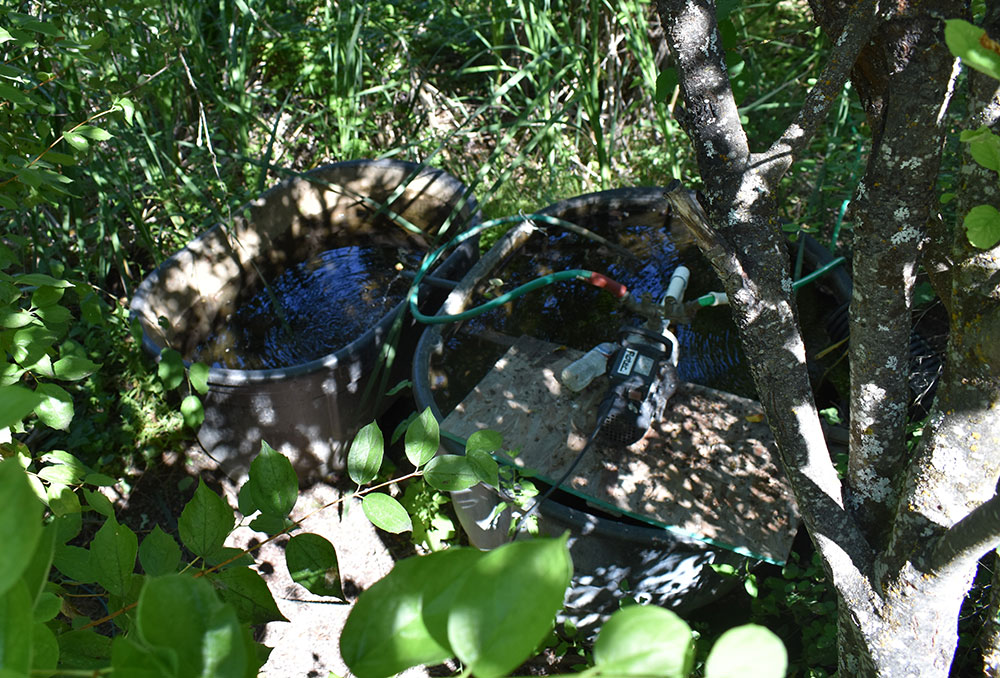
Sanitation is easy today, but will be critical, and more important, when we can’t wash our hands every ten minutes. I read a report a few years ago that most of the serious injuries during the Balkan war came from infections, not gunfire.
Toilets don’t need electricity to work. They just need water and gravity. Urine can sit in a toilet for hours, maybe days, without being flushed. Fecal matter is a different story. The above-mentioned 15 gallons of water will cover about 15 flushes, so I can live fairly normally in that regard.
Bathing is not a problem much of the year but would suck in January. I solved that by stocking propane and a large, single-burner stove (we use it for canning) that will heat water. We can dump it in a washtub like our grandparents did for a bath. We can do laundry the same way.
Although not legal in my area, I’ll put in an old-fashioned outhouse next summer. I’ve used them many times over the years, even a week ago on a road trip, and they’re no big deal. I keep a bag of lime around for other uses, and a cup of lime sprinkled down the hole every day or two keeps the place useful. I store a few cases of toilet paper, too, since the alternatives are unpleasant. We also keep lots of hand sanitizer.
FOOD
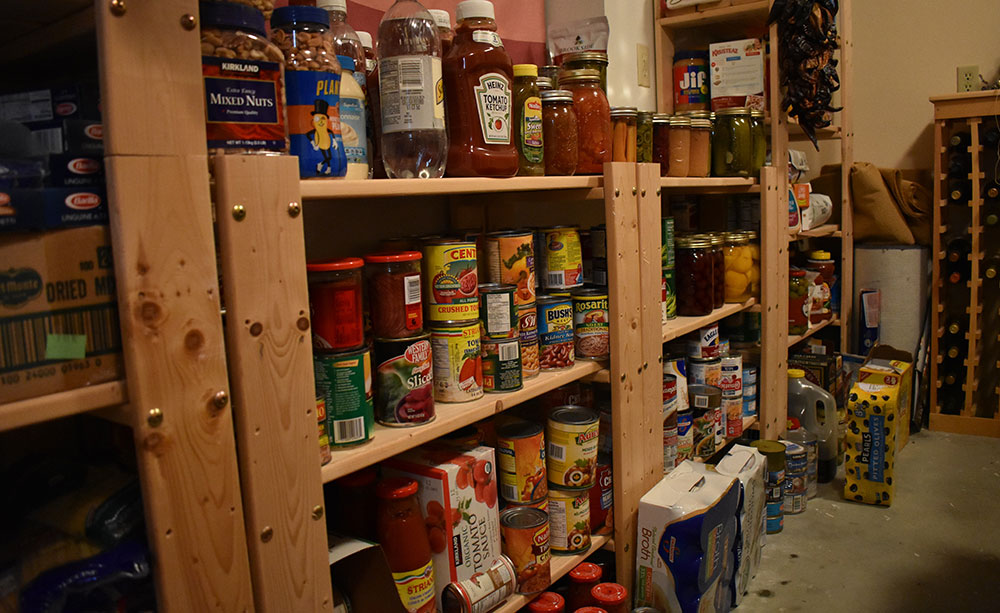
Food is self-explanatory—we all need and want it. One mistake some people make is to buy a large supply of food they’ve never eaten, buying it only because of its long shelf life. I remember a line from a story I once read: “Hunger is indeed a wonderful sauce,” but we all have food we like and dislike. Check the supermarket ads and you can find bargains on pasta, beans, canned goods, and other items that have low cost and long shelf life.
I’m also a Costco regular, buying big bags of rice, flour, and other food we normally eat. My reasoning is that, if we store and eat the same food we eat regularly, it’ll be less of a shock to our systems, and less stressful. We have a large pantry and rotate the stored food regularly. We can get 18 months easily without resupply. Instead of buying a huge supply all at once, just buy a few extra each time you can, and your stockpile will grow quickly without a hit to the monthly budget. I write the date of purchase on the label with a Sharpie, so I always know the vintage.
MEDICATIONS
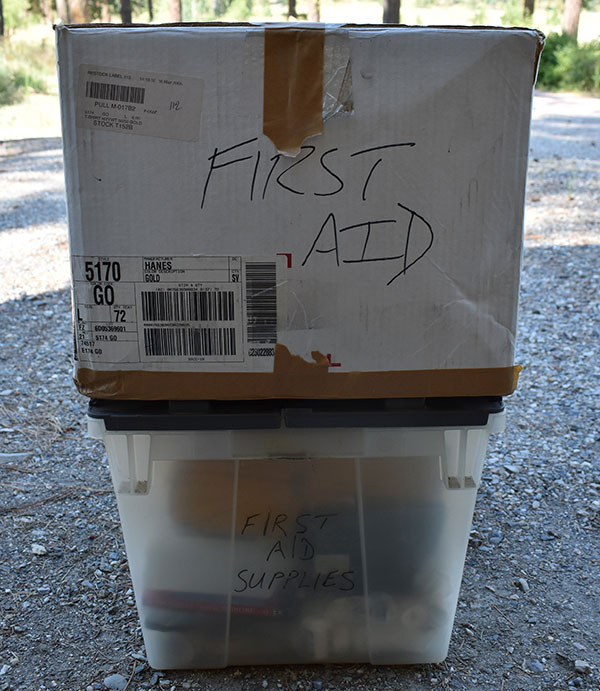
Medications can be critical to some, helpful to others, but necessary to all of us. I need one pill every day and one pill once a week, if I want to stay healthy. Insurers hate requests for 365 pills of any type, so I bought what I needed on a trip to Mexico.
While there, I bought all the sulfa powder I could find (sulfa stops germs from growing) and 600 hits of a broad spectrum antibiotic. All of it was over-the-counter and inexpensive, and is the same as what is sold in the U.S. I did get a raised eyebrow from the Customs agent when I answered “drugs” to his question of did I buy anything, but he quickly passed me when I explained and showed him the products.
I also buy band aids, gauze, Neosporin, etc at the local store—enough to stockpile a bunch of it.
HEAT, LIGHT, AND POWER

Heat, light, and power make modern life a lot easier and more pleasant. Shortly after we bought the house, I hired an electrician to wire in a box and transfer switch for a generator. My original 5KW gas generator was upgraded to a 7.5KW propane/gas unit that will run the entire house, including the pump in the well. We have power outages two to three times a year, and we run the generator for one hour in the morning and one in the evening, which keeps the refrigerators and freezers cold and lets us use lights and keep up with the news.
We have numerous other light sources that I covered in an article a few years ago (NAVIGATING THE DARKNESS: Light Selection for the Next Disaster, November 2015 S.W.A.T.).
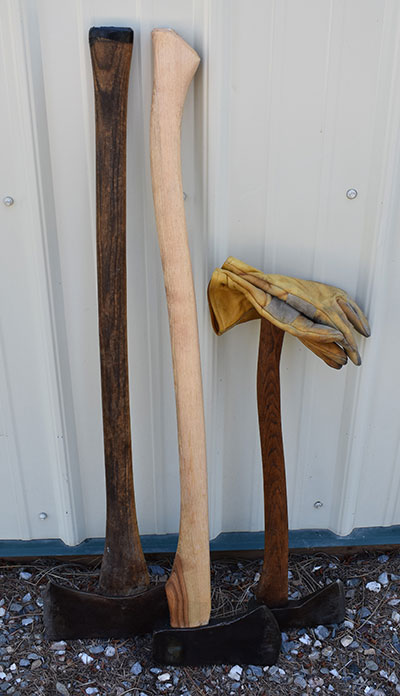
I cut and burn about three cords (a cord is a stack measuring 4x4x8 feet) of wood every year, and also have a heat pump. Firewood and woodstoves require some work (good exercise) but combine to provide a reliable and comfortable heat source.
Wood can be cut, with a permit, on most state and federal land. It requires a good pickup, a chainsaw, and some hand tools, but I find it soothing and satisfying. I can work for a few hours splitting and stacking the wood, and at the end I can see I actually accomplished something! I try to stay two to three years ahead of need, so I keep a good reserve of dry, seasoned firewood on hand.
GASOLINE
Gasoline is important to consider. The chainsaw, ATV, and my ’57 Chevy pickup all need fuel, and they all make daily chores easier. I talked with a local fuel supplier about bulk fuel storage, asking what and how long it could be stored. He suggested 500 to 1,000 gallons in an above-ground tank, kept out of direct sunlight. He doesn’t sell ethanol-free gas, and referred me to a competitor, but said it attracts less water than ethanol-treated fuel.
He recommended I add marine-grade (blue) Sta-bil fuel stabilizer to extend the useful life and to fill the tank to the top, eliminating oxygen. He told me the useful life would be about two years if all that were done, and after that I should use about a third per year, then refill the tank. If I do all that, the useful life of the gasoline is indefinite. If the budget allows, that project will be done in a few months.
GARDENS
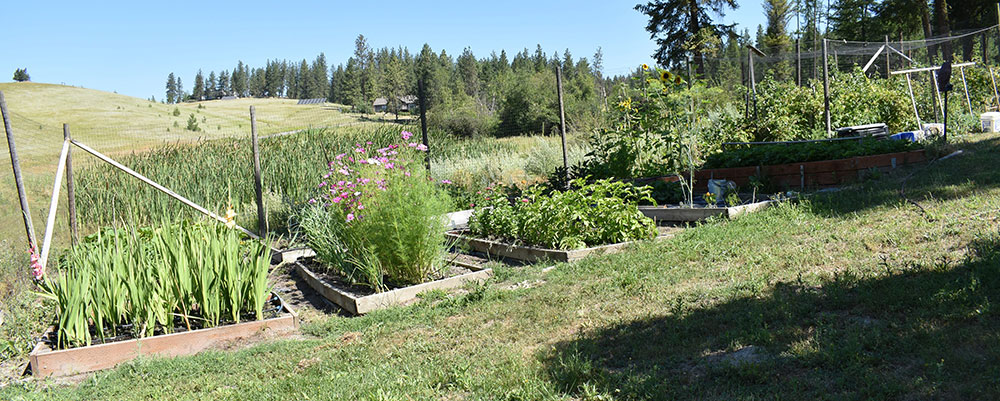
Gardens are a central part of our preps. My wife has always been a gardener. I reluctantly started, on the advice of the state psychologist, after a shooting. I planted a few radish seeds in a box on the porch, and you’d have thought I’d given birth when I pulled the first one.
During the Depression and World War II, gardens were a mainstay for much of the population. They provide fresh produce all summer and give us fruit and vegetables to can, store, and freeze. Lots of books and online sources can help you get started, and that half-acre of lawn you have will be useless after the crash. Depending on location, a fence might be needed to keep deer out.
ENTERTAINMENT
Entertainment is rarely mentioned in preparedness planning. A long-term disruption would be stressful to most of us, and it would be nice to relax now and then and take a load off. I have about 2,000 books, and my wife and I read every day. In the digital age, most people have never played, or have forgotten how to play, board games like Monopoly, and read everything on a device of some sort.
Pick up a few decks of cards and look at some games you all might like to try. As the event drags on, distractions might make life a little more pleasant around the table.
COMFORT ITEMS
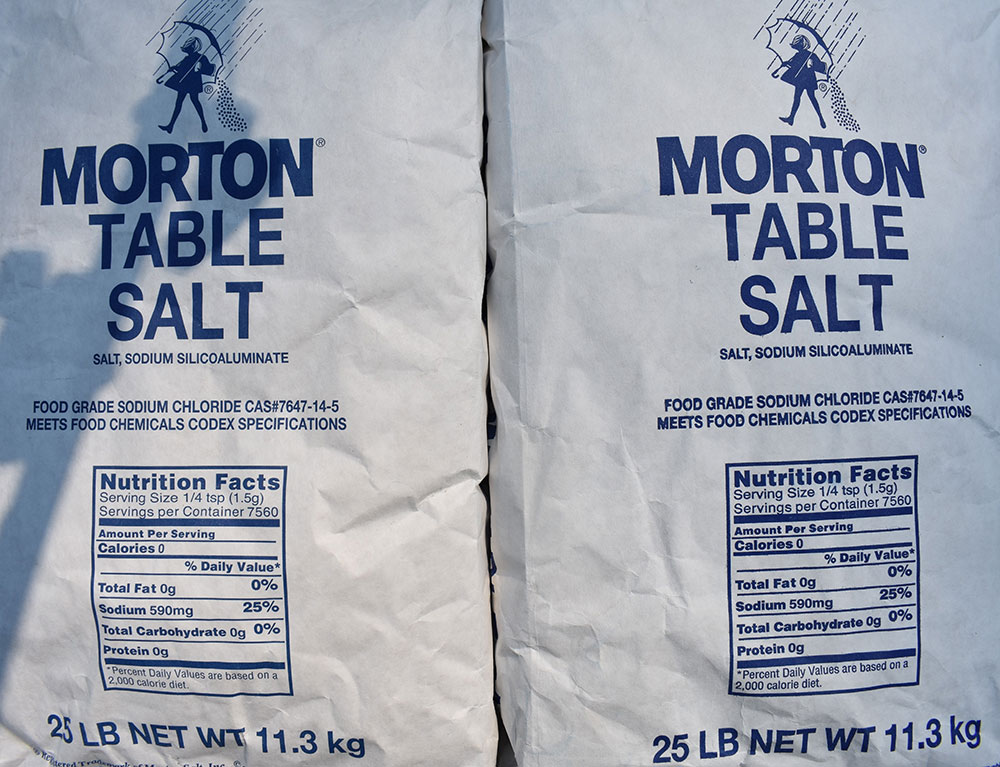
Comfort items will also help keep things on an even keel. Spices, chocolate, wine and spirits, and coffee (critical to some of us) can take the wrinkles out of our souls. If there are things you enjoy, make certain you have some of them. Spices and seasoning are plentiful and cheap today, but may be hard to get later. Don’t forget salt. I have 50 pounds in the pantry, for canning and preserving meat.
LET’S PREP!
Most of the things mentioned can be done with little extra expense, but with imagination and sweat. If you buy a bit of extra food each trip, a couple tubes of Neosporin, and a spare bottle of whisky at the liquor store, you won’t notice the outlay, and you’ll have more of what you need when you need it.
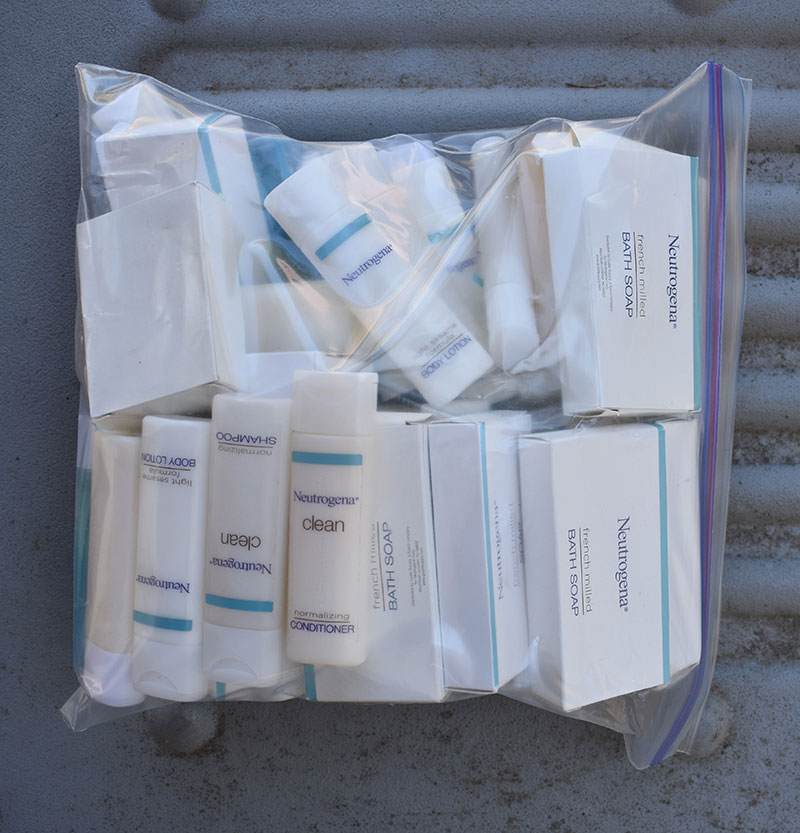
I suggest we all get real when we consider our preparedness levels and needs. Please note that neither thermite grenades nor C4 were listed above. Rifles and handguns weren’t either. Firearms may well be needed, but all the other items will definitely be needed. Make your plans and purchases accordingly.
Jeff Hall is a former soldier, retired Alaska State Trooper, and martial arts grandmaster. He can be reached at [email protected].

